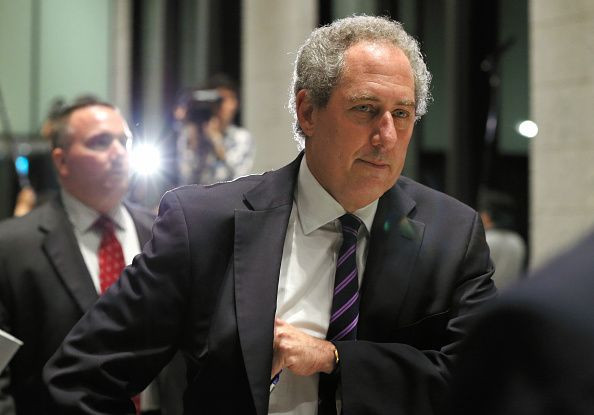Trans-Pacific Partnership: US Trade Chief Michael Froman Keeps Faith Despite Anti-Trade Rhetoric

The top U.S. trade official is not losing hope for congressional approval of a sweeping pan-Pacific free trade agreement this year despite strong anti-trade rhetoric in the U.S. presidential campaign that may be influencing reluctant lawmakers.
U.S. Trade Representative Michael Froman told Reuters in an interview in Lima, Peru, that he continues to have "good meetings" with members of Congress about the 12-country Trans-Pacific Partnership agreement.
As more industry groups voice support for the deal, U.S. lawmakers are likely to come out in favor of it, he said.
"The more they learn about the agreement, the more comfortable and positive they are about the substance," Froman said. "I think at the end of the day we’ll have produced the necessary support."
While he would like to see a vote as early as possible, he said he is discussing with congressional leadership and key committee chairs "about what the appropriate window is for bringing it forward."
Some key Republicans, such as Senate Majority Leader Mitch McConnell, have voiced opposition to a vote before the November presidential election, while others, including Senate Finance Committee Chairman Orrin Hatch, have said that a vote this year would be “difficult,” especially for a “lame-duck” Congress.
The Obama administration is gearing up for another major TPP sales pitch as a new analysis of the deal by the U.S. International Trade Commission is released on Wednesday.
Froman said he did not know the results of the independent body's cost-benefit analysis of the TPP. But he noted that another study of TPP, by the Peterson Institute for International Economics, which uses a similar long-term estimating model, found that the trade deal would boost U.S. national income by $131 billion annually by 2030.
CAMPAIGN HEADWINDS
Even so, the trade deal has come under withering attacks on the U.S. presidential campaign trail.
Donald Trump, the presumptive Republican nominee for the Nov. 8 election, has attacked the TPP as bad for American jobs and said he prefers bilateral trade deals. Hilary Clinton, the likely Democratic nominee, ditched her one-time support for TPP, at least in its present form, as challenger Bernie Sanders has railed against it.
Froman said the backlash against TPP largely stemmed from misplaced frustration with jobs lost to automation and anxiety over rising income equality after years of stagnant wages.
"I think trade agreements have become the proxy for a number of other concerns that people have, it's the vessel into which they pour a lot of their very understandable, very legitimate concerns," Froman said. "And politicians pick up on that."
TPP critics say the agreement does not do enough for workers, the environment or consumers. On Monday, U.S. and Colombian labor unions said Colombia had failed to enforce worker protections in its free trade agreement with the United States, raising questions about similar provisions in the TPP.
Froman said the TPP would help improve labor and environmental standards in a rapidly-globalizing world. After a visit to a remote Amazonian region in Peru, he pointed to joint U.S.-Peru efforts to fight illegal logging that started after implementation of their free trade agreement in 2009.
"This is only because we negotiated the forest annex and they agreed to certain environmental provisions," Froman said.
© Copyright Thomson Reuters 2024. All rights reserved.





















